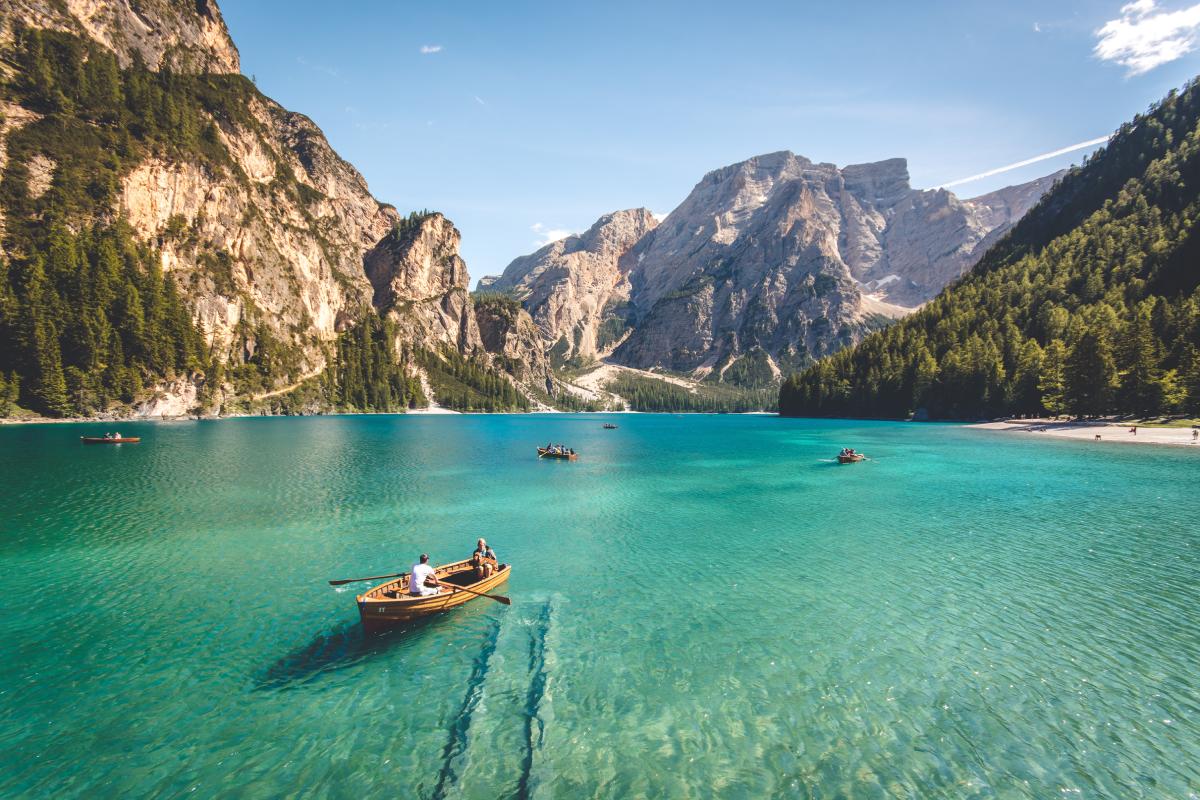Introduction
In a world where environmental consciousness is becoming more crucial each day, planning a sustainable vacation is not just a trend, but a responsibility. When we choose to travel sustainively, we are selecting to minimize our environmental footprint and respect the cultures and ecosystems of the places we visit. Sustainable vacations not only create lasting, positive impacts on destinations but also enrich the travel experience by fostering a deeper connection to the locales we explore. By embracing sustainability in our travels, we contribute to the preservation of natural and cultural treasures for future generations.
Importance of Sustainable Travel
Sustainable travel is essential as it addresses the need for responsible tourism, aiming to reduce the adverse effects of traveling. Whether it’s opting for eco-friendly accommodations, supporting local economies, or choosing low-impact transportation, every decision counts towards making travel more sustainable. Sustainable travel is not just about preserving destinations but also about enhancing the quality of life for local communities and protecting biodiversity. It’s a holistic approach that considers environmental, economic, and socio-cultural aspects to promote long-term sustainability.
Environmental Consciousness in Travel
Environmental consciousness in travel is a crucial aspect of sustainable vacations, emphasizing the need to protect ecosystems and conserve natural resources. This approach encourages travelers to be mindful of their energy consumption, waste generation, and interaction with local fauna and flora, promoting a harmonious coexistence with nature.
Supporting Local Economies
Choosing to support local businesses and purchase local products contributes to economic sustainability by empowering communities and reducing the dependency on mass tourism. It fosters community resilience and self-reliance, ensuring that the benefits of tourism are shared equitably among locals.
The Impact of Tourism on the Environment
The ever-growing travel and tourism industry significantly impact the environment. The carbon footprint from flights, the depletion of natural resources, and the pollution generated by tourism activities can lead to irreversible damage to ecosystems. The influx of tourists can strain local infrastructures, disrupt wildlife, and contribute to the degradation of natural landscapes. Understanding this impact is crucial for developing responsible travel habits and mitigating the environmental effects of tourism.
Ecological Degradation
Tourism often leads to ecological degradation as natural habitats are altered or destroyed to accommodate tourists. This degradation affects biodiversity and disrupts ecological balance, emphasizing the need for sustainable travel practices to preserve delicate ecosystems.
Cultural Implications
The impact of tourism isn’t limited to the environment; it extends to the cultural fabric of destinations. Irresponsible tourism can lead to cultural erosion and loss of heritage. Respecting local customs, traditions, and values is essential to maintain cultural integrity and foster mutual appreciation and understanding between travelers and hosts.
Overview of the Post
In this post, we will delve deeper into the various aspects of planning a sustainable vacation. We will explore practical and effective strategies, from choosing eco-friendly accommodations and transportation options to engaging in responsible activities and supporting local businesses. This guide aims to empower travelers to make informed decisions that align with the principles of sustainability, ensuring enjoyable and meaningful travel experiences that are beneficial to both the traveler and the destination.
What to Expect
Expect to uncover insights into making mindful choices throughout your travels, from your departure to your return. We will present actionable tips and advice, showcasing how each choice can contribute to a more sustainable and responsible travel experience.
Embarking on a sustainable vacation requires thoughtful planning and commitment, but the rewards are immense. It’s a journey of discovering new perspectives, embracing diversity, and making a positive impact on the world.
Understanding Sustainable Tourism
Grasping the essence of sustainable tourism is pivotal for anyone eager to embark on eco-conscious travels. This mode of tourism strives for a minimal impact on the environment and local cultures while ensuring enjoyable experiences for tourists. It aims to make a positive contribution to the conservation of natural and cultural heritage, respecting the diversity of the planet. By understanding sustainable tourism, travelers can cultivate responsible habits that harmonize with the environmental and cultural nuances of their destinations, shaping a tourism model that is viable in the long run.

Definition of Sustainable Tourism
Sustainable tourism is a form of travel that seeks to balance the needs of tourists with the protection of natural and cultural environments. It fosters respect between tourists and hosts and builds a sense of shared responsibility. This tourism model aims to ensure that development is a positive experience for local people, tourism companies, and the tourists themselves.
Balancing Needs and Preservation
Achieving a balance between tourists’ desires for unique experiences and the necessity of conservation is challenging yet critical. It requires meticulous planning and the incorporation of sustainable practices in every aspect of tourism, from travel operators to accommodations and attractions.
Shared Responsibility in Tourism
The ethos of shared responsibility in sustainable tourism underlines the importance of collaboration between travelers, local communities, and tourism providers. It encourages mutual respect and understanding, facilitating the creation of enriching experiences that benefit all stakeholders.
The Three Pillars of Sustainable Tourism: Environmental, Economic, and Socio-Cultural
Sustainable tourism revolves around three integral pillars: the environmental, economic, and socio-cultural. The environmental pillar emphasizes preserving natural resources and biodiversity. The economic pillar focuses on generating income and employment for local communities. Lastly, the socio-cultural pillar stresses the conservation of cultural heritage and traditions and promotes cross-cultural understanding and respect.
Environmental Integrity in Tourism
Maintaining environmental integrity involves embracing practices that reduce waste and pollution and conserve natural resources. It’s about protecting ecosystems and biodiversity and mitigating the impact of tourism activities on the environment.
Economic Prosperity and Equity
Sustainable tourism strives to bring economic prosperity to local communities, ensuring equitable distribution of the economic benefits of tourism. It seeks to empower local communities, reduce poverty, and contribute to local development.
Respecting Cultural Richness
Sustaining cultural richness involves appreciating and preserving local traditions, arts, and heritage. It encourages travelers to understand and respect the customs and values of host communities, fostering a mutually enriching exchange between different cultures.
Why Sustainable Tourism Matters
Sustainable tourism is not a mere travel trend; it is a necessity in our interconnected world. It matters because it addresses the multifaceted impacts of tourism, offering a pathway to preserve our world’s diverse ecosystems and cultures. It’s a proactive approach to ensure that future generations can experience the beauty and richness of our planet. Sustainable tourism promotes responsible travel, environmental conservation, cultural exchange, and economic development, leading to a more balanced and inclusive global community.
Preserving for Future Generations
The urgency of adopting sustainable tourism practices stems from the desire to leave a thriving, vibrant planet for future generations. It’s a commitment to protect the natural and cultural treasures of our world, allowing subsequent generations to explore and appreciate them.
Contributing to Global Harmony
Embracing sustainable tourism is a step towards building a harmonious global society. It nurtures understanding and appreciation of diverse cultures and environments, fostering a sense of unity and shared responsibility for our planet’s well-being.
In summary, understanding sustainable tourism enables travelers to contribute to the well-being of the destinations they visit. It’s about being mindful, making informed choices, and taking responsibility for the impacts of our travels, ensuring a healthier and more equitable world for all.
Choosing Your Destination
Selecting a destination is the first step in organizing a sustainable vacation, and it significantly influences the overall impact of the trip. It’s crucial to opt for locations where sustainability is a priority, ensuring that the visit contributes positively to local communities and ecosystems. Deliberate choices help in fostering environmental conservation and cultural preservation, aligning the journey with responsible tourism practices. Carefully researched and well-considered destinations can transform the travel experience into an enriching exploration of the world’s diversity while respecting its integrity.

Importance of Researching Destinations for Sustainability Practices
Investigating prospective destinations is fundamental to plan a sustainable vacation. Research aids travelers in identifying places where ecological and social sustainability are ingrained in local practices. Information about local conservation efforts, community involvement in tourism, and cultural preservation initiatives is crucial to make informed decisions.
Identifying Sustainable Practices
Recognizing destinations that implement sustainable practices enables travelers to support places committed to environmental conservation and community well-being. It also ensures that the visit will be in harmony with local ecosystems and cultures.
Informed Decision-Making
Being well-informed about a destination’s sustainability initiatives empowers travelers to make decisions that align with their values and sustainability goals. It allows for a deeper understanding of the local context and the impact of their visit.
Eco-Tourism Destinations
Eco-tourism destinations are those that emphasize environmental conservation and education. These destinations usually offer opportunities to experience natural areas while minimizing impact and contributing to the well-being of the local population. Opting for eco-tourism destinations ensures that the journey is environmentally responsible and socially conscious.
Experiencing Nature Responsibly
Eco-tourism destinations allow travelers to explore natural wonders with minimal environmental degradation. They provide insights into local ecosystems, fostering appreciation and understanding of the natural world.
Contribution to Local Well-being
Choosing eco-tourism destinations supports conservation efforts and promotes the economic stability of local communities. It encourages responsible interaction with the environment and local cultures, creating a positive impact.
Impact on Local Communities and Ecosystems
The destination chosen will inevitably affect local communities and ecosystems. The inflow of tourists can bring economic benefits but can also strain local resources and alter the cultural and environmental landscape. Conscious choices can help minimize negative impacts and contribute to the sustainability of the area.
Balancing Economic Benefits and Strains
It’s vital to consider how tourism revenues are utilized and distributed within local communities. Ensuring equitable economic benefits and mitigating strains on local resources are essential aspects of sustainable travel.
Preserving Cultural and Environmental Landscapes
Being mindful of the impacts on local cultures and environments helps in maintaining the integrity of destinations. It emphasizes the importance of respecting traditions and ecosystems, fostering harmonious and enriching exchanges between travelers and hosts.
Concluding, choosing a sustainable destination requires a balance between fulfilling travel aspirations and acknowledging the implications of tourism. It’s about embracing destinations that prioritize sustainability, respecting local communities and environments, and contributing to the global movement towards responsible tourism. By opting for destinations with a commitment to sustainability, travelers can experience the richness of our world in a way that is nurturing and enlightening, leaving a positive imprint on the places visited.
Sustainable Travel Planning
Planning is a crucial phase of any vacation, and when sustainability is a priority, it involves making thoughtful decisions that will minimize the ecological footprint of the journey. Considering the impact of every aspect of the trip—from transportation to accommodations—is vital in maintaining a balance between enjoyment and responsibility. The pursuit of eco-friendly options and the acknowledgment of travel timing can influence the sustainability of the travel experience, allowing travelers to indulge their wanderlust while respecting the world that hosts them.

Eco-Friendly Transportation Options
Opting for green transportation is a significant step towards a sustainable vacation. Whether it’s choosing fuel-efficient airlines, traveling by train, or using public transport, every decision contributes to reducing carbon emissions and conserving energy.
Choosing Low-Impact Modes
Selecting low-impact modes of transport like buses, trains, or bicycles can significantly lower the environmental impact of travel. These options are usually more energy-efficient and less polluting than flying or driving private vehicles.
Carbon Offsetting Opportunities
Some transportation providers offer carbon offsetting options to mitigate the environmental impact of travel. This allows travelers to compensate for their carbon emissions by contributing to projects that reduce greenhouse gases.
Off-Peak Travel Benefits
Traveling during off-peak times can contribute to more sustainable tourism by helping to distribute tourist numbers more evenly throughout the year. This can alleviate pressure on local resources and services, providing a more authentic and relaxed experience for travelers.
Reducing Pressure on Destinations
Off-peak travel helps in managing the flow of tourists, reducing the strain on local infrastructure, natural resources, and services, and allowing destinations to maintain their charm and authenticity.
Enhanced Travel Experience
Traveling during less busy times often results in a more enjoyable experience, with fewer crowds, lower prices, and a greater opportunity to engage with local communities and cultures.
Booking Sustainable Accommodations
Choosing accommodations that prioritize sustainability is another essential aspect of planning a green vacation. Look for establishments that have eco-certifications, use renewable energy sources, and implement water-saving and waste-reducing measures.
Seeking Eco-Certified Establishments
Eco-certified accommodations adhere to stringent environmental standards, ensuring that their operations are in harmony with ecological conservation and sustainable resource management.
Evaluating Environmental Initiatives
Assessing the environmental initiatives of accommodations, such as energy efficiency, waste management, and water conservation, allows travelers to support establishments that are committed to sustainability.
In essence, sustainable travel planning is about making conscientious choices that resonate with ecological preservation and cultural respect. By opting for eco-friendly transportation, traveling during off-peak times, and booking sustainable accommodations, travelers can significantly reduce their impact and contribute to the well-being of the destinations they visit. It’s about intertwining enjoyment and responsibility, creating enriching experiences that align with the preservation of our planet’s beauty and diversity.
Eco-friendly Transportation
Transportation is a fundamental component of travel, and its choice significantly influences the sustainability of the vacation. Eco-friendly transportation is crucial in mitigating the environmental impact of travel, reducing carbon emissions, and conserving energy. It encompasses various modes and approaches that prioritize ecological integrity, enabling travelers to explore destinations while respecting their environmental contexts.

Pros and Cons of Different Transport Methods
When considering transportation options, it’s crucial to weigh the environmental implications of each method. While some modes offer efficiency and speed, they might have higher carbon footprints. Conversely, slower means might be more eco-friendly.
Air Travel
While fast and convenient, air travel generally has a high environmental impact due to significant carbon emissions. Choosing airlines that operate modern, fuel-efficient fleets and have robust sustainability programs can help mitigate this impact.
Train and Bus Travel
Trains and buses are usually more eco-friendly alternatives to flying, especially for shorter distances. They tend to have lower carbon emissions per passenger and can offer a scenic and relaxed travel experience.
Car Travel
Cars offer flexibility but can be environmentally detrimental, especially when traveling alone. Opting for fuel-efficient or electric vehicles and carpooling can minimize their environmental footprint.
Carbon Offset Programs
Carbon offset programs are initiatives that allow travelers to compensate for the emissions produced during their trips by investing in projects that reduce or capture an equivalent amount of carbon dioxide. These programs are essential tools for travelers aiming to neutralize their environmental impact.
Investing in Sustainability
Participating in carbon offset programs is a way to invest in sustainability. It supports projects focusing on renewable energy, forestation, and community development, fostering global environmental conservation.
Achieving Carbon Neutrality
Through carbon offsetting, travelers can balance out their carbon emissions, moving closer to carbon-neutral travel. It’s a practical approach to counteract the unavoidable environmental impact of transportation.
Active Transport Options During Vacation (Biking, Walking)
Choosing active transport options like biking and walking during vacation is not only healthy but also environmentally friendly. These modes of transport have minimal environmental impact and offer a unique perspective on the destination, allowing for a closer connection with the local environment and community.
Exploring Destinations Sustainably
Biking and walking are sustainable ways to explore destinations, reducing the reliance on motorized transport and lowering carbon emissions. They allow travelers to experience places more intimately and discover hidden gems off the beaten path.
Promoting Health and Well-being
Active transport options promote physical activity and well-being. They provide opportunities to engage with the surroundings, creating memorable experiences while maintaining a healthy lifestyle.
To conclude, choosing eco-friendly transportation is a cornerstone of sustainable travel. It involves making informed decisions about transport methods, utilizing carbon offset programs, and embracing active transport options. Each choice made in favor of eco-friendly transportation is a step towards preserving the diverse and delicate ecosystems of our planet, ensuring they can be enjoyed by future generations.
Sustainable Accommodation Options
Accommodation is a significant aspect of any vacation, and choosing sustainable options is crucial for travelers who aim to minimize their environmental impact. Sustainable accommodations are establishments that operate in an environmentally friendly manner, prioritizing energy efficiency, waste reduction, and conservation of resources. By opting for green hotels or eco-lodges and paying attention to sustainable amenities and certifications, travelers can support businesses that share their commitment to preserving the planet.

Choosing Green Hotels or Eco-Lodges
Selecting accommodations with a focus on sustainability is vital. Green hotels and eco-lodges are establishments that implement practices to reduce energy consumption, water use, and waste production, striving to have a minimal impact on the environment.
Evaluating Sustainability Practices
Before booking, consider the sustainability practices of the accommodation. Look for initiatives like renewable energy use, water conservation measures, and waste reduction programs to ensure the establishment is genuinely eco-friendly.
Supporting Conservation Efforts
Choosing accommodations that support local conservation efforts and community initiatives is also important. It contributes to the preservation of local ecosystems and cultural heritage, creating a positive impact on the destination.
Importance of Sustainable Amenities
Sustainable amenities are those that are designed to minimize environmental impact, such as refillable toiletry containers and energy-efficient appliances. Paying attention to these amenities is crucial as they contribute to the overall sustainability of the stay.
Reducing Single-Use Plastics
Opting for accommodations that avoid single-use plastics and offer eco-friendly alternatives helps in reducing plastic waste and promoting sustainability.
Optimizing Resource Use
Accommodations that provide energy-efficient lighting, heating, and cooling, and implement water-saving measures, contribute to the optimization of resource use, reducing the environmental footprint of the stay.
Verification of Eco-Certifications
Eco-certifications are awards and labels that attest to the environmental responsibility of accommodations. Verifying these certifications is essential to ensure that the establishments are genuinely committed to sustainability.
Assessing Credibility
Not all eco-certifications are created equal. It’s crucial to assess the credibility of the certifications by researching the standards and criteria they are based on and ensuring they are recognized by reputable organizations.
Confirming Commitment to Sustainability
Verifying eco-certifications confirms the accommodation’s commitment to sustainability. It provides assurance that the establishment meets specific environmental standards and operates in a manner that is considerate of ecological conservation.
In conclusion, choosing sustainable accommodation options is integral to planning a green vacation. It involves selecting eco-friendly establishments, considering the sustainability of amenities, and verifying the credibility of eco-certifications. By doing so, travelers can enjoy their stay knowing that they are contributing to the preservation of the environment and supporting the sustainable development of the destination. It’s about creating harmonious interactions with the places visited, fostering a sense of responsibility and connection to the world.
Mindful Activities and Excursions
When on vacation, the activities and excursions we choose to engage in play a vital role in defining the sustainability of our travel. Mindful activities are those that respect the natural environment, local communities, culture, and traditions. They emphasize minimal impact and enhance the well-being of the local ecosystem and its inhabitants. By selecting eco-conscious activities, showing respect for local flora and fauna, and contributing to the local economy, travelers can experience the beauty of the destinations while ensuring they leave a positive imprint behind.

Picking Eco-Conscious Activities
Choosing activities that are eco-conscious is essential. These are activities that have a minimal negative impact on the environment and actively contribute to the conservation of the local ecosystem.
Evaluating Environmental Impact
Before participating, assess the environmental impact of the activity. Choose those that preserve the natural surroundings, promote biodiversity, and support ecological balance.
Prioritizing Education and Conservation
Opt for activities that emphasize education and conservation. Learn about local ecosystems and conservation efforts and choose activities that contribute to protecting the environment.
Respect for Local Flora and Fauna
When interacting with the natural environment, respecting local flora and fauna is crucial. It is essential to observe animals in their natural habitat without disturbing them and to avoid damaging plants and ecosystems.
Observing without Interfering
Enjoy the beauty of wildlife by observing from a distance. Avoid feeding, touching, or disturbing animals and adhere to guidelines provided by local conservationists or guides.
Preserving Natural Habitats
Be mindful of the surroundings and avoid harming the natural habitats of plants and animals. Stay on marked trails and avoid littering to ensure the conservation of local ecosystems.
Contribution to Local Economy
Supporting the local economy is a key aspect of sustainable travel. By purchasing local products and services and participating in community-based tourism, travelers can make a positive impact on local communities.
Supporting Local Businesses
Choose local restaurants, shops, and service providers. Purchasing locally made products and services contributes to the economic well-being of the community and promotes sustainable development.
Participating in Community-Based Tourism
Engage in tourism initiatives run by local communities. This not only provides an authentic and enriching experience but also ensures that the benefits of tourism are directly channeled to the community.
In conclusion, engaging in mindful activities and excursions is a fundamental component of a sustainable vacation. By being eco-conscious in the activities we choose, respecting the local environment, and supporting the local economy, we can enjoy enriching experiences while preserving the integrity of the destinations we visit. It is about cultivating a sense of responsibility and appreciation for the diverse and intricate tapestry of life on our planet, ensuring its continued vibrancy for generations to come.
Sustainable Packing Tips
Packing is an integral part of travel preparation, and doing it sustainably can significantly reduce your environmental impact. Sustainable packing involves being mindful of what and how you pack, focusing on minimizing waste, and selecting eco-friendly products. By packing light, prioritizing reusable items, and avoiding single-use plastics, you can contribute to environmental conservation and make your travel more eco-friendly.

Importance of Packing Light
Packing light is not just convenient but also more sustainable. It helps in reducing the amount of energy used in transportation and decreases the demand for natural resources.
Reducing Carbon Footprint
Lighter luggage requires less fuel to transport, directly impacting the carbon emissions associated with your travel. By minimizing the items you bring, you contribute to lessening your overall carbon footprint.
Conserving Resources
Packing only essentials means fewer items are produced, transported, and potentially wasted, contributing to the conservation of natural resources and reduction of environmental impact.
Reusable Items to Pack
Bringing reusable items is a practical and effective way to reduce waste during travel. Items such as water bottles, shopping bags, and utensils can replace their single-use counterparts, preventing pollution and resource depletion.
Carrying Reusable Containers
Pack reusable containers and bottles to avoid purchasing single-use plastic bottles and containers, thus contributing to the reduction of plastic waste and environmental pollution.
Opting for Multi-Functional Items
Select items that can serve multiple purposes, such as a sarong that can be a blanket, towel, or a piece of clothing. This helps in reducing the number of items you need to pack, conserving space and resources.
Avoiding Single-Use Plastics
Avoiding single-use plastics is crucial for sustainable travel. Single-use plastics are a major source of environmental pollution and can have devastating effects on wildlife, ecosystems, and human health.
Prioritizing Eco-friendly Alternatives
Choose eco-friendly alternatives like bamboo toothbrushes and biodegradable soap. These products are designed to minimize environmental impact and are usually more sustainable than their plastic counterparts.
Refusing Unnecessary Packaging
While traveling, opt to refuse unnecessary packaging, like plastic bags and straws. Choose products with minimal or sustainable packaging, and support businesses that prioritize environmental responsibility.
In conclusion, sustainable packing is a crucial aspect of planning a green vacation. It involves making conscious decisions about what and how you pack, with an emphasis on reducing waste and environmental impact. By incorporating these sustainable packing tips, you not only make your travels more eco-friendly but also take a step towards fostering a more sustainable and responsible tourism culture. Embracing these practices will help in ensuring the preservation of the beautiful destinations we explore, enabling future generations to experience the wonder and diversity of our planet.
Respecting Local Culture and Environment
Being a responsible traveler means respecting the local culture and environment of the places you visit. It is essential to approach different customs and traditions with an open and respectful mindset and to interact with the local environment in a manner that is sustainable and non-disruptive. Understanding local customs, buying local and ethical souvenirs, and leaving no trace are pivotal components of responsible and sustainable travel.

Importance of Understanding Local Customs
Gaining an understanding of local customs is fundamental to respectful and responsible tourism. It fosters mutual respect and understanding between travelers and local communities and enriches the overall travel experience.
Promoting Cultural Exchange
By understanding and respecting local customs, travelers facilitate positive cultural exchange, leading to a more enriching and authentic travel experience.
Fostering Community Respect
When travelers respect local traditions and norms, it fosters a sense of mutual respect and understanding between them and the local communities, contributing to harmonious interactions and exchanges.
Buying Local and Ethical Souvenirs
Choosing local and ethical souvenirs is a way to support local economies and promote sustainable tourism. It is essential to be mindful of the origin and production methods of the products you buy.
Supporting Local Artisans
Purchasing products made by local artisans ensures that money spent goes directly to the creators, fostering local economic development and sustaining traditional crafts and skills.
Ensuring Ethical Production
Select souvenirs that are produced ethically and sustainably, considering the environmental impact and labor conditions under which they were made. Prioritizing such products promotes responsible consumption and production.
Leaving No Trace
Adhering to the principles of Leave No Trace is crucial to minimize the environmental impact of your travels. It involves respecting nature, disposing of waste properly, and leaving places as you found them.
Preserving Natural Beauty
Maintaining the integrity of natural sites ensures that they remain unspoiled for future visitors and preserves the biodiversity and ecological balance of the area.
Minimizing Waste Production
Properly disposing of waste and minimizing the use of single-use plastics helps in reducing pollution and conserving natural resources, contributing to the overall well-being of the environment.
In conclusion, respecting local culture and environment is a cardinal principle of sustainable travel. It involves embracing local traditions, supporting local economies through ethical purchases, and ensuring the conservation of natural and cultural sites. Integrating these practices into your travel plans will not only enhance your travel experience by fostering mutual respect and understanding but also ensure the longevity and vibrancy of the destinations and communities you visit, allowing future generations to experience their beauty and richness.
Conclusion
Planning a sustainable vacation is not just an environmental need but also a responsibility we hold as global citizens to protect our planet. A sustainable vacation allows us to experience the beauty and diversity of the world while minimizing our impact on the environment and contributing to local communities. By integrating sustainable practices in travel planning, accommodation, transportation, and daily activities, we can all make a positive impact and ensure the preservation of our world for generations to come.

Recap on How to Plan a Sustainable Vacation
In the journey of planning a sustainable vacation, it is crucial to make informed and responsible choices in every step, from selecting destinations and accommodations to engaging in activities and packing. The key is to respect local cultures, support local economies, and preserve the natural environment.
Mindful Decision-Making
Making mindful and informed decisions regarding destinations, transportation, and accommodations is fundamental in minimizing environmental impact and supporting sustainability.
Conscious Interaction with Locals and Environment
Engaging with local cultures respectfully and interacting with the environment responsibly ensures the conservation of natural and cultural heritage and promotes sustainable development in local communities.
Encouragement to Put These Practices into Action
Putting sustainable travel practices into action is essential for the well-being of our planet. By embracing sustainability, we can contribute to the preservation of the environment, cultural heritage, and local communities.
Active Participation in Sustainable Practices
Actively participating in and prioritizing sustainable practices in every aspect of travel planning and execution fosters environmental conservation and cultural preservation.
Advocating for Sustainable Tourism
Promoting and advocating for sustainable tourism practices within our networks can amplify the impact and encourage more people to adopt sustainability in their travels, contributing to global sustainable development goals.
Final Thoughts on the Role Each Traveler Plays in Global Sustainability
Every traveler plays a significant role in global sustainability. Each choice we make, from the smallest to the most significant, has an impact on our world. By choosing to travel sustainively, we are not just tourists but also stewards of the environment and advocates for sustainable development and cultural preservation.
Responsibility as Global Citizens
As global citizens, we have the responsibility to protect our planet and ensure that our actions promote sustainability, equity, and respect for all living beings and ecosystems.
Contribution to a Sustainable Future
By adopting sustainable travel practices, each traveler contributes to building a more sustainable and equitable future, where the beauty and diversity of our world are valued and preserved for everyone to experience and enjoy.
In summary, the journey towards sustainable vacation planning involves integrating conscious and responsible practices in every aspect of travel. It is a collective effort where each traveler has the potential to make a difference. By embracing and advocating for sustainability, we not only enrich our travel experiences but also contribute to building a world where the environment, cultures, and communities are valued, respected, and preserved.


